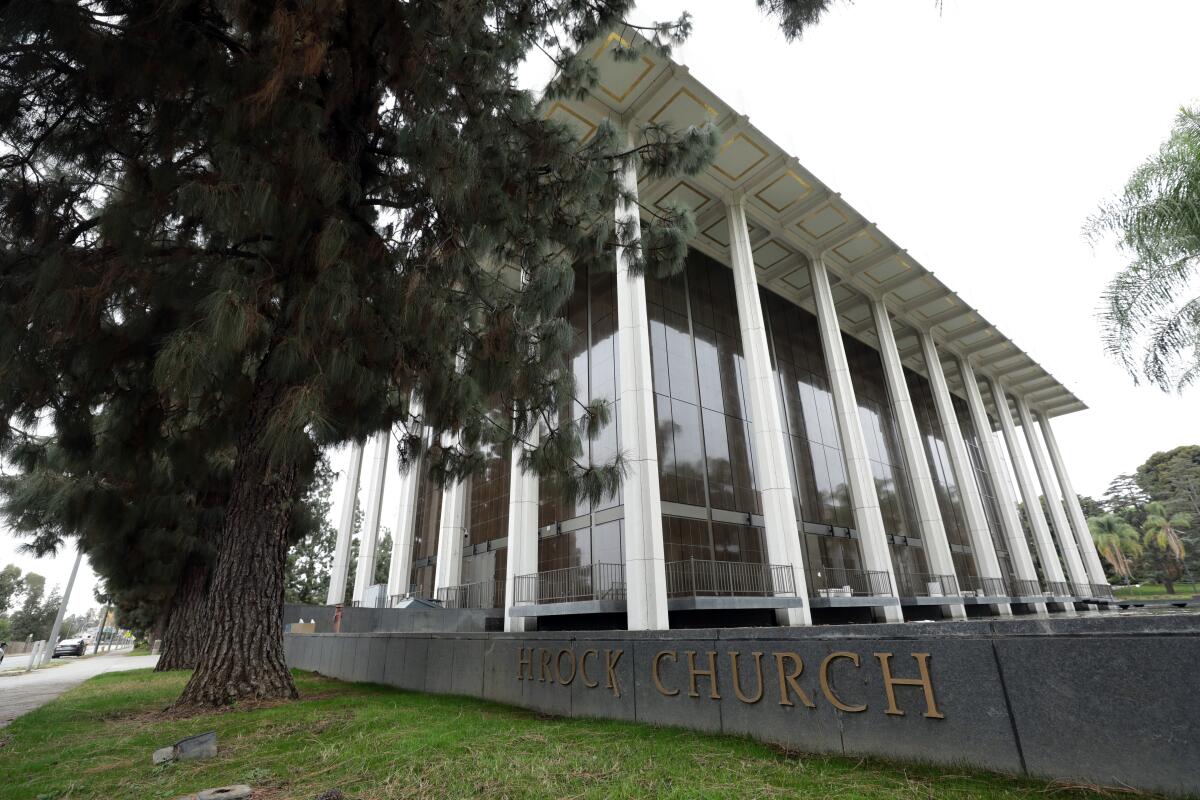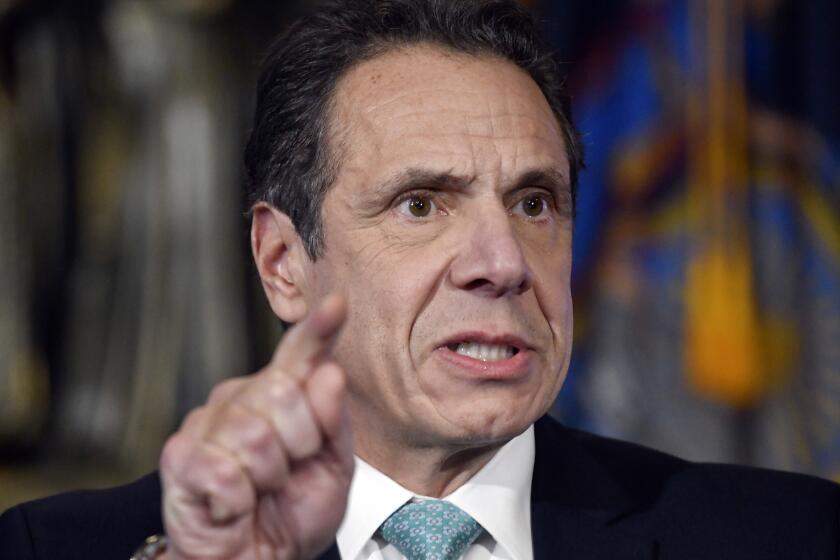Appeals court signals it may block some California COVID-19 church restrictions

- Share via
SAN FRANCISCO — A federal appeals court appeared likely Monday to overturn some of California’s coronavirus restrictions on places of worship, following a U.S. Supreme Court decision that sided with churches over New York health authorities.
During an online hearing, a three-judge panel of the U.S. 9th Circuit Court of Appeals grappled with the constitutionality of Gov. Gavin Newsom’s pandemic restrictions on places of worship. Pasadena-based Harvest Rock Church asked the court to block restrictions on indoor worship following a federal judge’s refusal to do so last month.
Although the panel did not issue a ruling Monday, the tenor of the questioning suggested it might reverse its previous decision upholding the constitutionality of the California restrictions.
In late September, the appeals court upheld the state rules in a 2-1 vote, with two Democratic appointees in the majority, and a Republican dissenting. At the time, the U.S. Supreme Court had also upheld restrictions on churches.
But the Supreme Court in November decided 5-4 that coronavirus restrictions on the number of people allowed to enter New York houses of worship violated constitutional guarantees of religious freedom. The change of stance stemmed from the replacement of the late Justice Ruth Bader Ginsburg with Justice Amy Coney Barrett, an appointee of President Trump.
The Supreme Court for the first time blocked state COVID-19 restrictions, rejecting limits on how many people may gather in New York houses of worship.
Faced with that ruling, 9th Circuit Judge Morgan Christen, an appointee of President Obama, noted Monday that some of the restrictions in California mirror those the high court struck down. The Supreme Court overturned rules that limited indoor attendance at places of worship to a specific number, without taking into account the size of the building.
California’s blueprint for reopening prevents indoor worship in counties where the coronavirus is widespread and limits attendance to specific numbers in counties with fewer infections.
Christen, addressing a lawyer for the state, said the numerical limits were “the problem I think you’ve got.”
Following the Supreme Court’s decision, Los Angeles County health officials permitted houses of worship to have indoor services as long as staff and participants wore masks and practiced social distancing. Harvest Rock said it was still necessary to litigate because churches outside of L.A. County remain affected.
The high court sent the Harvest Rock case back for reconsideration after its November decision. U.S. Dist. Judge Jesus G. Bernal, an Obama appointee, upheld the state regulations a second time in a ruling just before Christmas. Bernal said in his second ruling that essential businesses such as grocery stores that are open for indoor operations pose less of a risk from the virus than churches.
“Worship services typically last a minimum of one hour with congregants gathered in close proximity,” Bernal wrote.
The 9th Circuit panel refused to block his decision before Christmas and instead set Monday’s hearing and asked for written arguments.
California has argued that its ban on in-person worship in counties in the state’s purple tier for reopening, comprising those with widespread virus transmission, does not discriminate because other congregate indoor activity also is banned. Churches can conduct services outdoors, the state stressed.
But the Supreme Court decision in the New York case appeared to prevent elected officials from restricting churches any more than they do essential businesses, such as grocery stores.
“If the government could come in and prove that religious services are more likely to spread COVID than other essential businesses, maybe the court would come to a different conclusion,” said Berkeley Law dean Erwin Chemerinsky, a constitutional law expert, in an interview.
He said the Supreme Court ruling did not prevent government from imposing on churches requirements such as mask-wearing and social distancing, though he appeared doubtful that a ban on singing, chanting and congregate prayer would be allowed. “That is regulating religious behavior,” he said.
A different three-judge 9th Circuit panel in December struck down a Nevada restriction on places of worship, saying the state was treating religious institutions more stringently than nonreligious ones.
Thousands of maskless congregants gather weekly at Grace Community Church as Pastor John MacArthur ignores orders from a judge and public health officials.
The Nevada rule prohibited places of worship from admitting more than 50 people inside but allowed secular businesses to admit a number equivalent to 50% of the capacity allowed by fire codes.
A Republican appointee on the 9th Circuit said the Nevada decision was compelled by the Supreme Court, whose ruling in the New York case “arguably represented a seismic shift in Free Exercise law.”
Harvest Rock, which has affiliate campuses in Corona, Santa Ana and downtown L.A., has been holding indoor services despite the health orders.
The 9th Circuit may rule on the case at any time.
More to Read
Sign up for Essential California
The most important California stories and recommendations in your inbox every morning.
You may occasionally receive promotional content from the Los Angeles Times.















